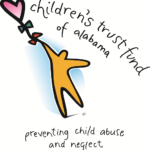 The holiday season can be a difficult time for people in recovery – and that is during a regular year. It is no secret that 2020, which has consisted of a global pandemic during an election year, has been challenging for everyone. Rates of anxiety and depression are at an all-time high.[1] Isolation and loneliness are affecting people of all walks of life. If you are in recovery, struggling with these things can make the holiday season difficult. And, if you are like me, you may not be able to travel to spend the holidays with your loved ones this year. Whether you are 10 years sober or 10 days sober, it is important to know how to prevent relapse while social distancing during the holidays.
The holiday season can be a difficult time for people in recovery – and that is during a regular year. It is no secret that 2020, which has consisted of a global pandemic during an election year, has been challenging for everyone. Rates of anxiety and depression are at an all-time high.[1] Isolation and loneliness are affecting people of all walks of life. If you are in recovery, struggling with these things can make the holiday season difficult. And, if you are like me, you may not be able to travel to spend the holidays with your loved ones this year. Whether you are 10 years sober or 10 days sober, it is important to know how to prevent relapse while social distancing during the holidays.
Have a Plan
COVID-19 cases are at an all-time high and public health officials are encouraging people to spend the holidays with only people from their immediate household.[2] If you have chosen not to travel for the holidays or if you will not be spending it with your family, it will be helpful to have a plan ready for what you are going to do during the holiday. Without a plan, it can be easy to get caught up in your thoughts, sucked into loneliness, and upset about the fact that you cannot be with your family.
Whether your holiday plans consist of self-care, celebrating Christmas or Hanukkah on Zoom, or trying something new, having a plan will help you stay busy and keep you away from boredom. Here are a few ideas:
- Host a virtual Secret Santa gift exchange on Zoom
- Take a drive to look at Christmas lights
- Cook yourself your favorite meal
- Bake your favorite dessert OR try a new recipe
- Have a movie marathon of your favorite films and shows
- Go for a socially-distanced walk outside
- Attend a virtual 12-Step meeting
- Have a virtual holiday meal with your loved ones
 If you are in early recovery, sticking to a routine or a schedule is extremely important. Too much free time or boredom can allow negative thoughts or cravings to seep in, especially during this time of year. By having a plan for the holidays and a schedule that you plan to stick to, you will be able to keep yourself busy and make the most out of the holiday season.
If you are in early recovery, sticking to a routine or a schedule is extremely important. Too much free time or boredom can allow negative thoughts or cravings to seep in, especially during this time of year. By having a plan for the holidays and a schedule that you plan to stick to, you will be able to keep yourself busy and make the most out of the holiday season.
Attend Extra 12-Step Meetings
If you participate in a 12-Step fellowship like Alcoholics Anonymous (AA) or Narcotics Anonymous (NA), it may be a good idea to ramp up the number of meetings you attend. Meetings and fellowship are two of the most important parts of recovery because they provide companionship, understanding, and guidance to members. In fact, studies conducted by the Stanford School of Medicine have found that AA is almost always more effective than psychotherapy in helping people get sober and stay sober.[3]
By staying connected with your sober support group and actively working a recovery program, you can reduce your risk of relapse as well as reduce your feelings of loneliness and isolation. The good news is that there are virtual meetings you can attend around-the-clock, so regardless of your situation, you don’t have to be alone.
Make Self-Care a Top Priority
Self-care can mean a lot of different things, but you should never forget the basics: diet, exercise, and sleep hygiene.
The holidays often involve hearty meals and lots of sugary treats. While I am not saying you do not deserve to indulge, it is also important to remember that what is good for your gut is good for your emotional and mental health. In fact, approximately 95% of serotonin – the neurotransmitter that is responsible for mood and emotional regulation – is produced in the gut! This means the food that you eat can tremendously affect your mood, your mental health, and ultimately your sobriety.[4]
Other factors that will influence your mood and overall well-being are how much quality sleep you are getting and how much exercise you are engaging in. While eating a poor diet can have a negative effect on your mental health, not getting enough sleep or exercise will do the same.
Exercise reduces stress, improves self-esteem, and helps treat depression and anxiety. Likewise, sticking to a routine sleep schedule can help treat depression, reduce stress, and improve overall mental health.[5] When you are actively taking steps to take care of yourself, your mental and emotional health will thank you and you will find it much easier to stay sober.
Reach Out to Extended Family, Old Friends, and Sober Supports
Now more than ever, it is important to stay connected with your sober supports – especially if you are social distancing during the holidays or spending the holidays alone. You can go a step further to socialize with people by reaching out to friends and family that you have not spoken to in a while. Let’s face it – we all have at least one person that we always say we are going to call, but never get around to it.
The holiday season is the perfect time to call those individuals to catch up, spark a connection, and spread holiday cheer. By staying connected and continuing to reach out, you can combat any loneliness or depression you are experiencing. Your phone call may even help someone else who is struggling, whether you realize it or not.
References:
- https://www.mhanational.org/number-people-reporting-anxiety-and-depression-nationwide-start-pandemic-hits-all-time-high
- https://www.cdc.gov/coronavirus/2019-ncov/daily-life-coping/holidays/winter.html
- https://med.stanford.edu/news/all-news/2020/03/alcoholics-anonymous-most-effective-path-to-alcohol-abstinence.html
- https://www.health.harvard.edu/blog/nutritional-psychiatry-your-brain-on-food-201511168626
- https://www.ncbi.nlm.nih.gov/pmc/articles/PMC6955623/
Written by Cassidy Webb








